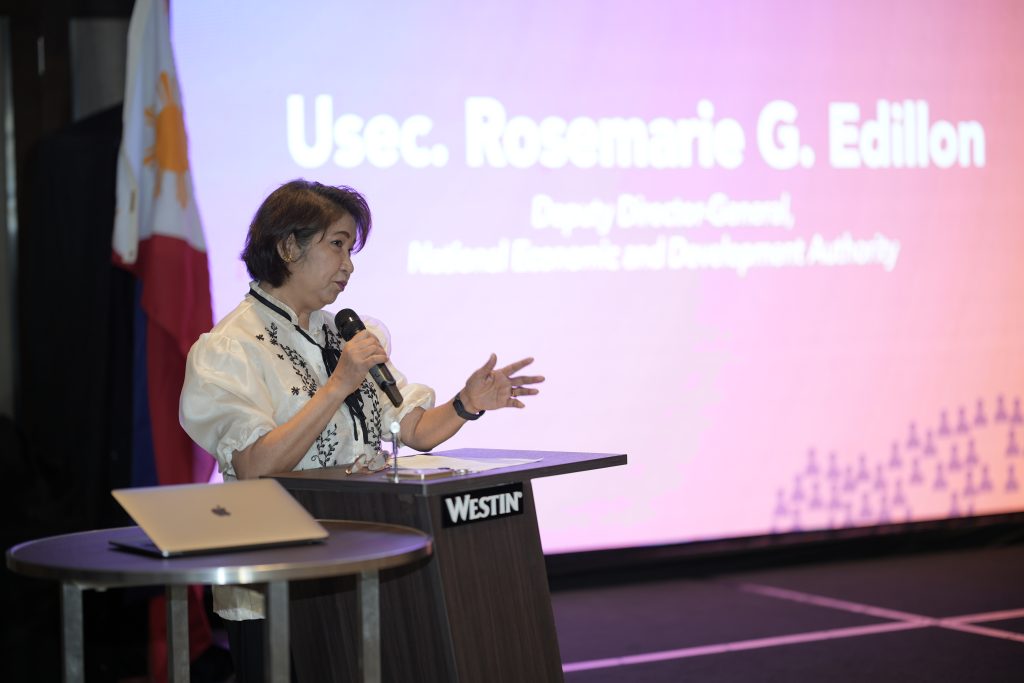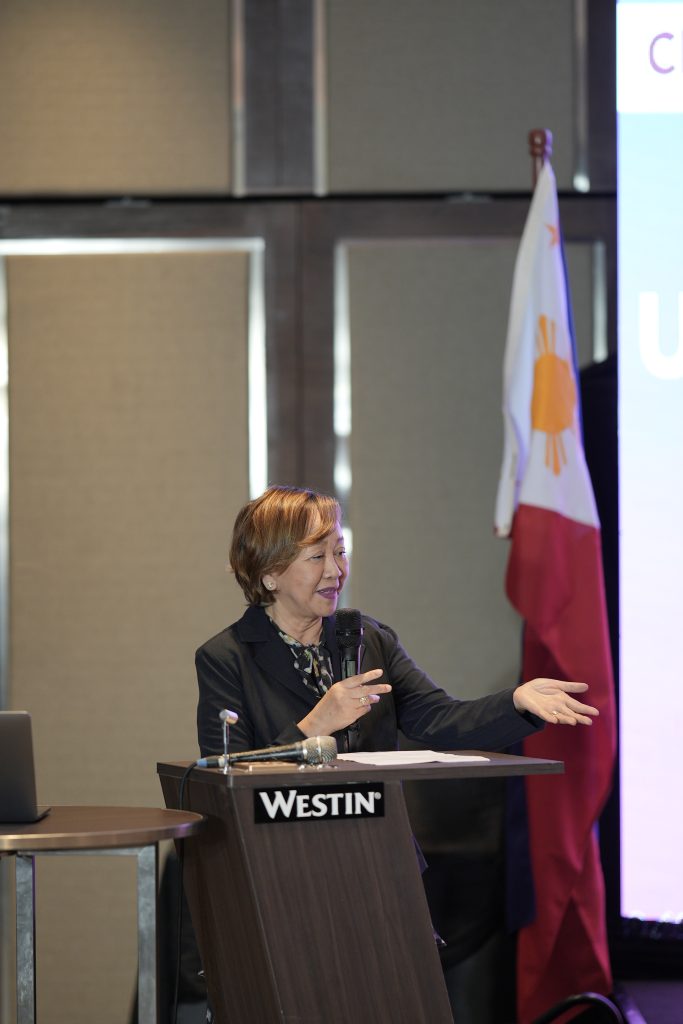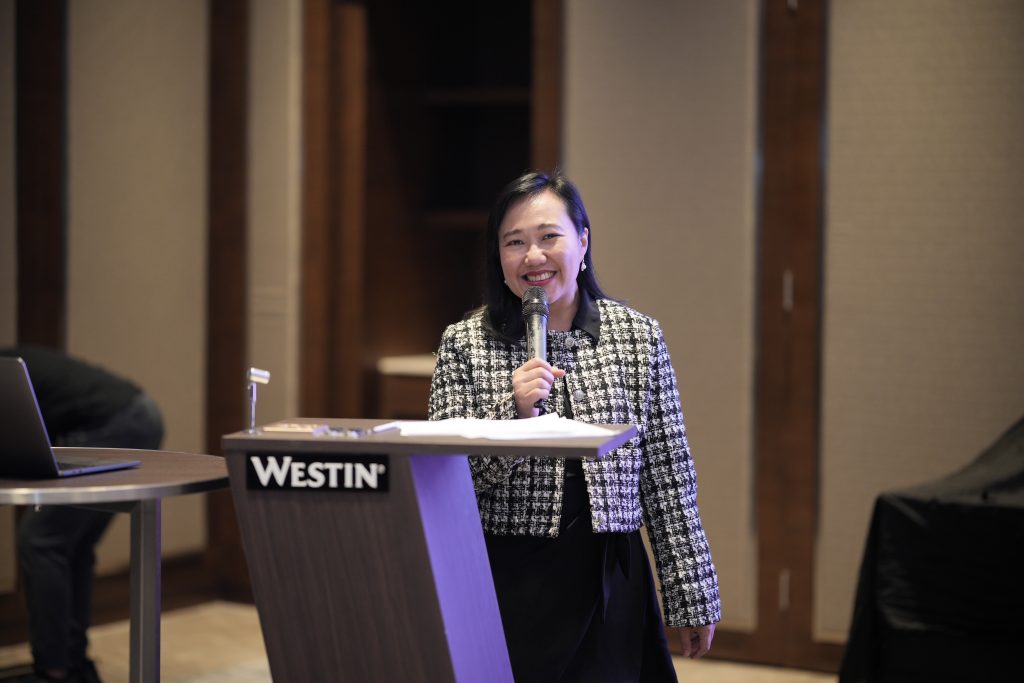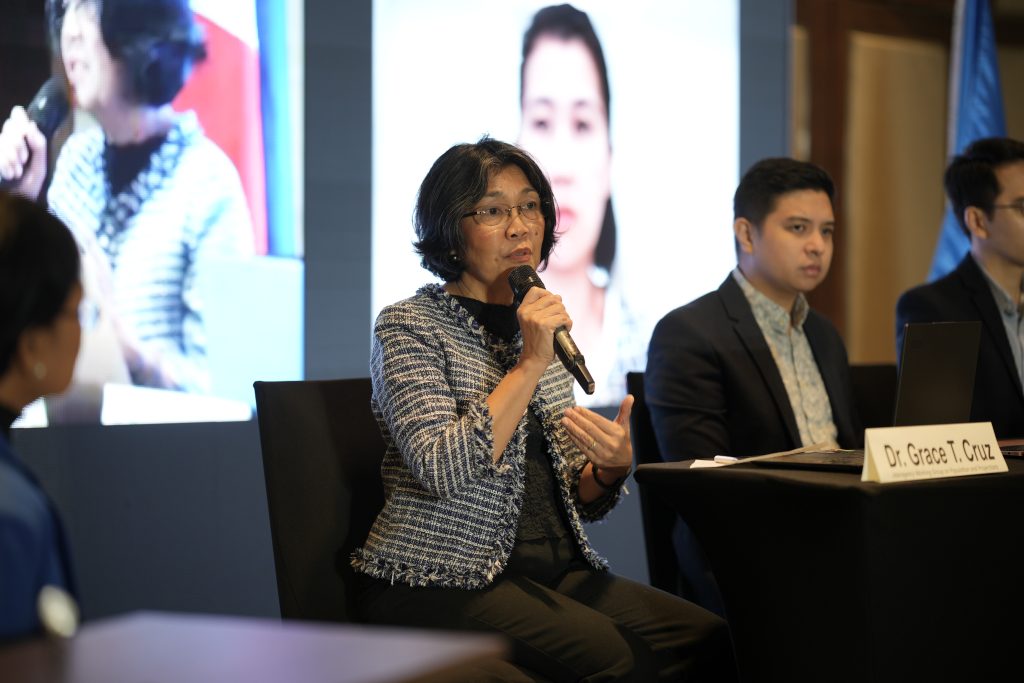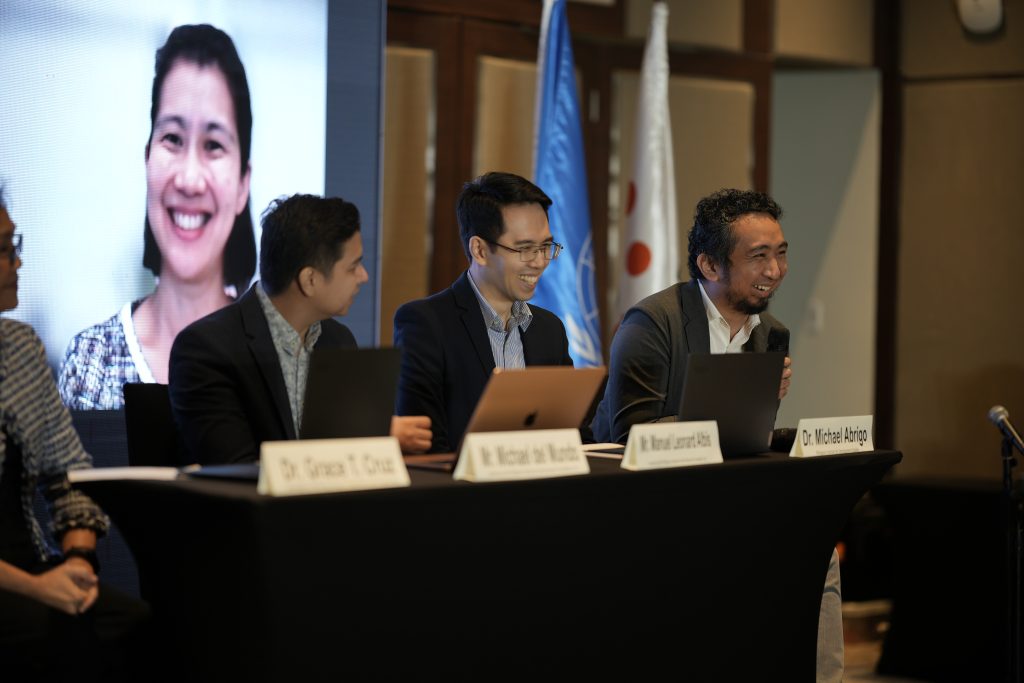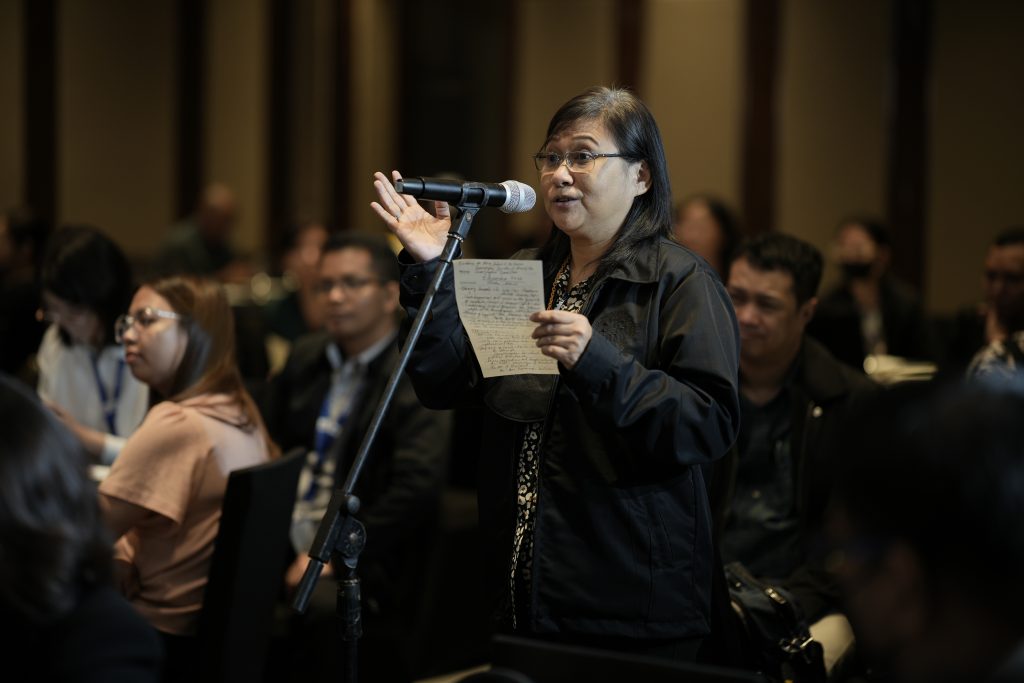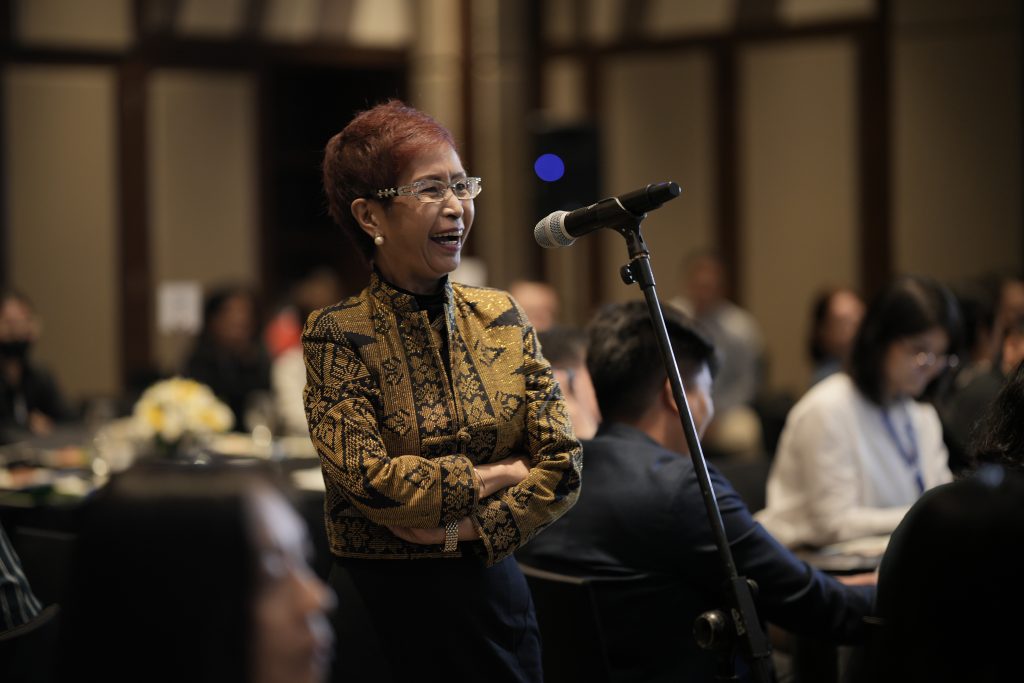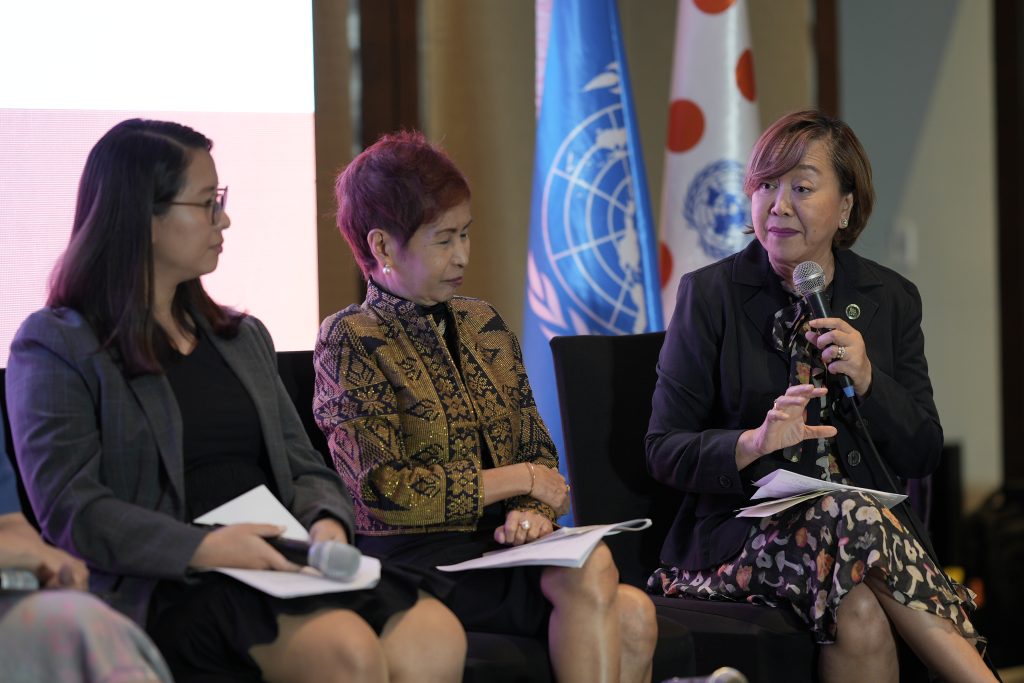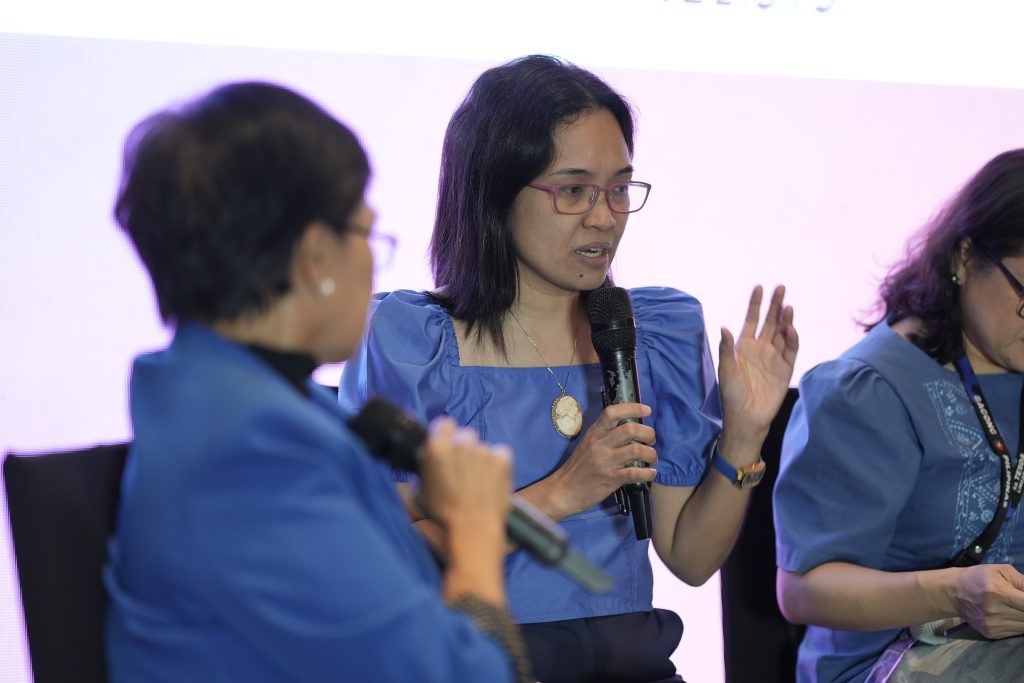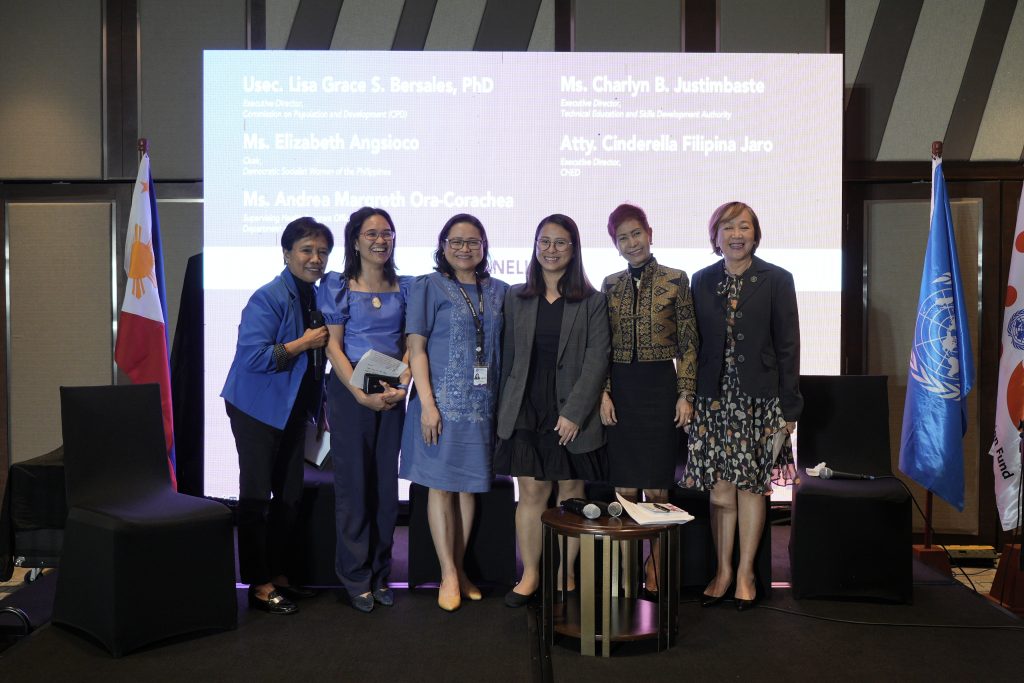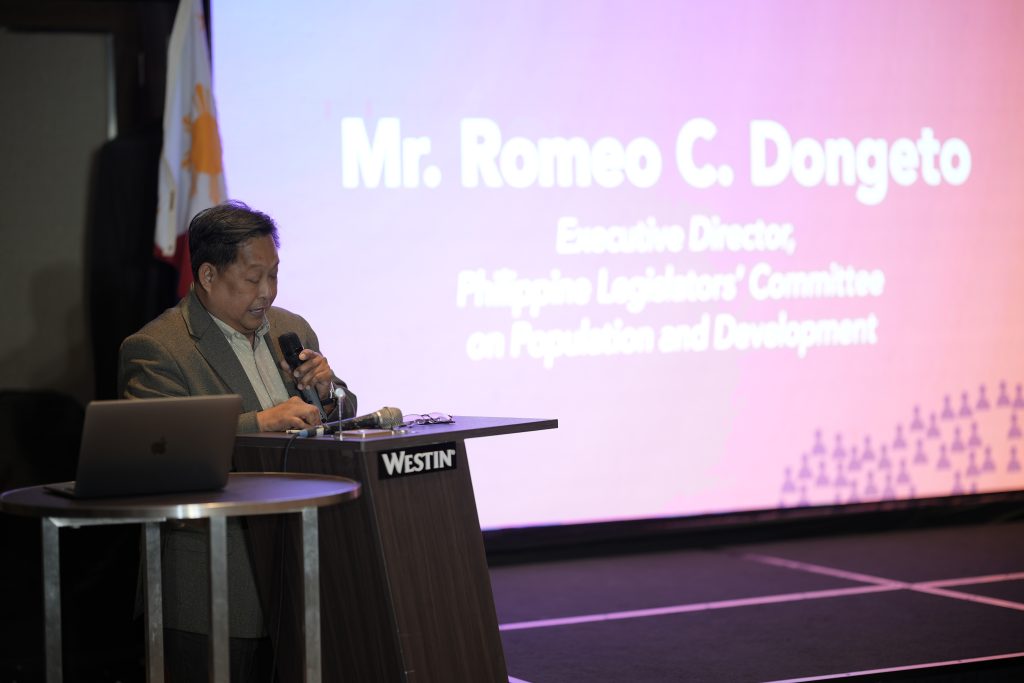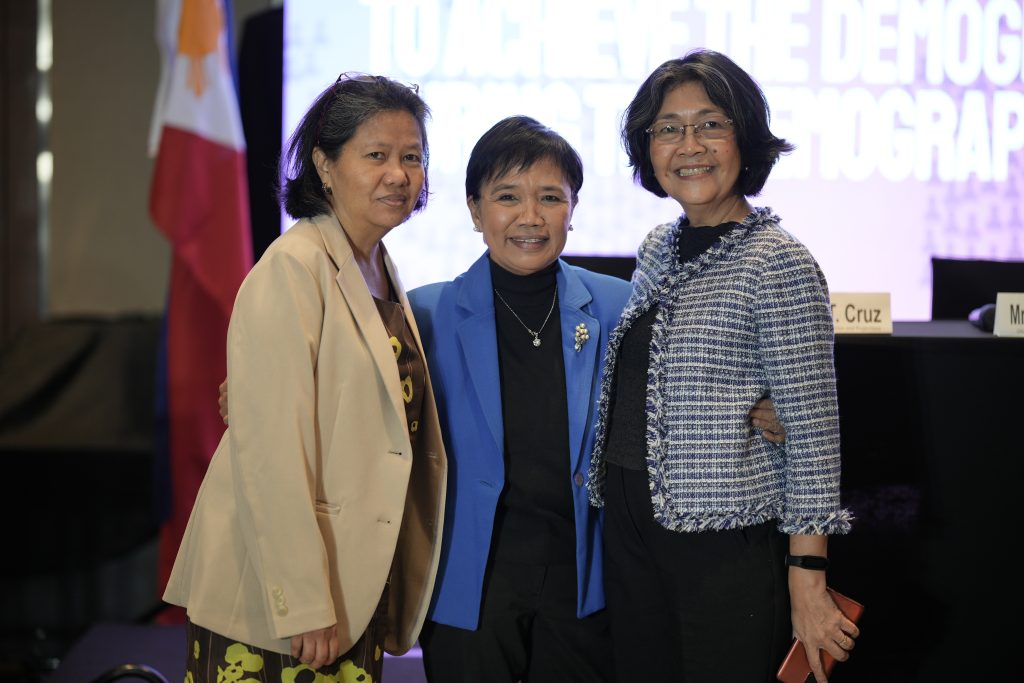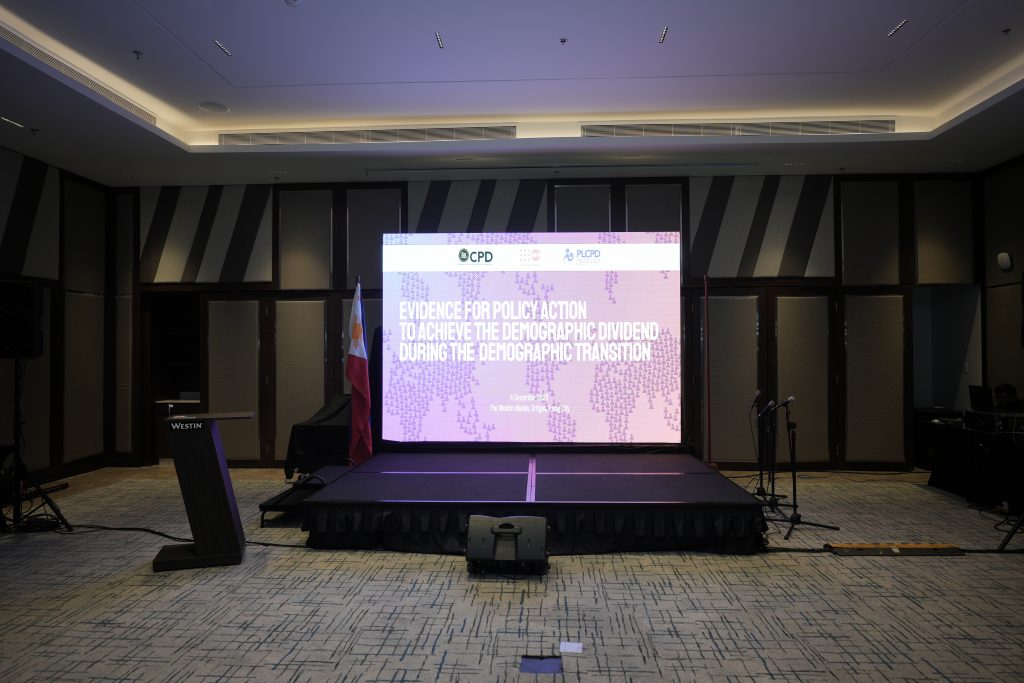PLCPD, partners call for evidence-informed policymaking amid PH demographic transition
4 December 2023, Pasig City—The Philippine Legislators’ Committee on Population and Development (PLCPD), in collaboration with the United Nations Population Fund (UNFPA) Philippines and the Commission on Population and Development (CPD) on Monday held a multi-stakeholder forum highlighting the need for evidence-based decision-making in policy and program development in light of the country’s changing population structure.
The forum, titled Evidence for Policy Action to Achieve the Demographic Dividend during the Demographic Transition, convened government agencies, academe, civil society, legislative personnel, and development partners to deliberate on existing evidence and help formulate short- to medium-term policy recommendations.
Presentations and panel discussion explored key aspects of the country’s demographic shift such as the decreasing fertility rate, population projections, population aging, and the various tools available in guiding population and development policymaking such as the National Transfer Accounts (NTA) and National Time Transfer Accounts.
The event also marked the launch of the Philippine Population and Development Situation Analysis (PDSA), which added more contextual insights to the conversation on the strategies to navigate the challenges of an evolving demographic landscape. The forum also served as an avenue for CPD’s preliminary discussion of the Philippine Population and Development Plan of Action 2023-2028 (PPD-PoA), the government’s newly adopted blueprint for interagency initiatives to address persisting population challenges to achieve the country’s economic and development goals.
Investing in every Filipino to maximize the demographic dividend
“The declining fertility rate presents us with a unique opportunity to harness the demographic dividend, but let us be reminded that this dividend is not automatic; it requires intentional and informed efforts,” said UNFPA Philippines Country Representative Dr. Leila Saiji Joudane.
Dr. Joudane stressed that the country must be well-equipped, advocating for the adoption of evidence-based strategies that incorporate population data for strategic planning. Furthermore, she urged a shift beyond mere numerical considerations, emphasizing the importance of focusing on the quality of policies and strategies.
Going a step beyond evidence generation and utilization, PLCPD Executive Director Rom Dongeto underscored the importance of ensuring that this opportunity also improves the quality of life of all Filipinos in a way that does not stifle their freedoms.
“As the Philippines faces this transition, we cannot overemphasize the need to put people at the center of development: prioritizing the rights and choices of all; empowering individuals, especially women and young people; closing gaps and inequalities in access to healthcare, education, and employment; and ensuring that no one is left behind,” declared Mr. Dongeto.
The demographic dividend signifies economic growth resulting from changes in a country’s population structure, often attributed to lower birth and mortality rates. This occurs as the working-age population expands and becomes more productive, leading to a rise in per capita income.
#



